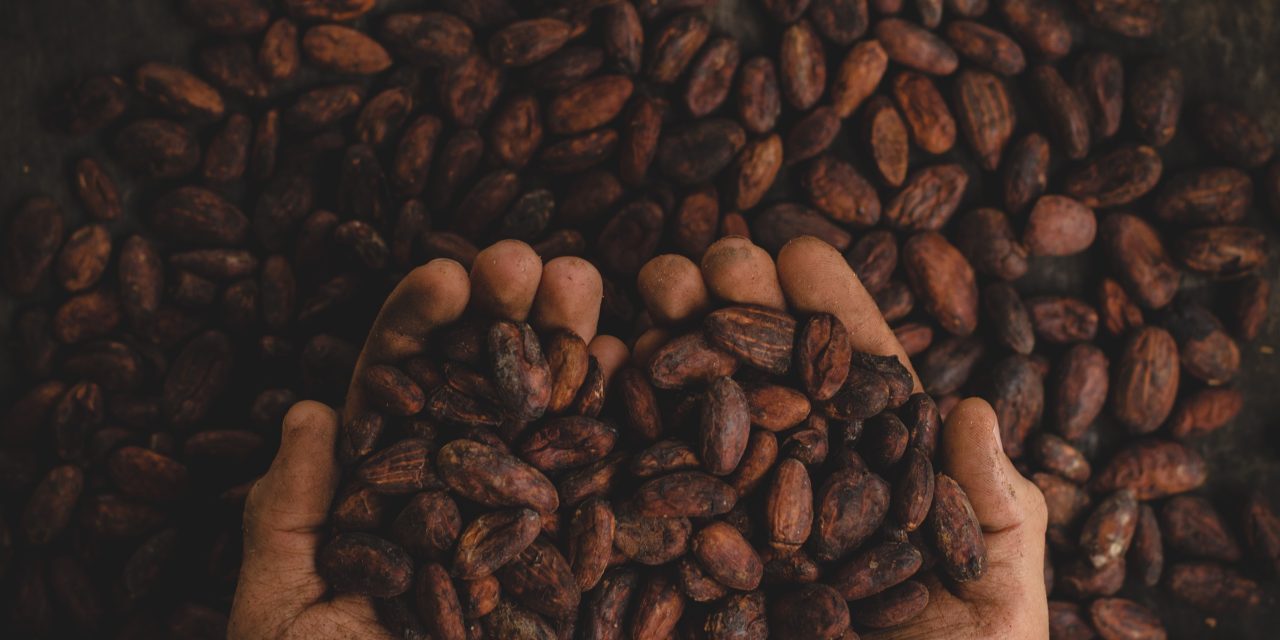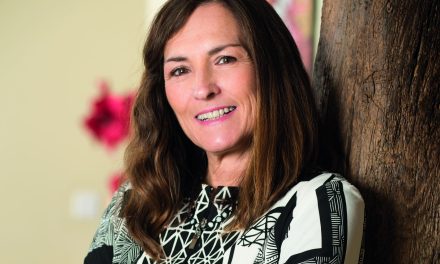Chocolate companies are taking significant steps to improve cocoa farming conditions and promote sustainability in the industry by supporting responsible farming practices, investing in farmer training and community development, partnering with organisations to address deforestation risks, and empowering cocoa farmers to create a resilient and equitable supply chain that meets the demands of conscious consumers. Kiran Grewal reports.
he chocolate industry, driven by the demand for this delectable treat, relies heavily on cocoa farming. However, behind the indulgence lies a complex supply chain that often neglects the challenges faced by cocoa farmers, particularly those in developing countries. This article explores the development of sustainable cocoa farming practices and the pursuit of equal opportunities for cocoa farmers within the chocolate industry, aiming to foster environmental stewardship, improve farmers’ livelihoods, and ensure a sustainable future for both the industry and the farmers.
Chocolate companies in the world are increasingly recognising the importance of improving cocoa farming conditions and have taken steps to drive positive change within the industry. These companies understand that sustainable cocoa farming practices are crucial for ensuring a reliable cocoa supply, protecting the environment, and supporting the livelihoods of cocoa farmers. Here are some examples of how the leading chocolate companies are making efforts to improve cocoa farming conditions:
Mars, Incorporated has made significant commitments to improving cocoa farming conditions. Through their “Cocoa for Generations” strategy, Mars aims to source 100% of its cocoa from certified sustainable sources by 2025. The company actively supports initiatives that promote responsible farming practices, empower cocoa farming communities, and protect ecosystems. They invest in farmer training programs, provide access to quality planting materials, and promote gender equality and social welfare in cocoa-producing regions.
“In an era where sustainability is paramount, the cocoa industry stands at a crossroads, facing pressing challenges that demand transformative change”
Nestlé, a global leader in the chocolate industry, has prioritised sustainability in its cocoa supply chain. The company launched the Nestlé Cocoa Plan, a comprehensive initiative that focuses on improving cocoa farming conditions, farmer livelihoods, and cocoa quality. Through the plan, Nestlé provides training and technical assistance to farmers, promotes responsible agricultural practices, and invests in community development projects such as schools and healthcare facilities. Nestlé also supports certification programs like Rainforest Alliance and Fairtrade, ensuring fair prices and environmental sustainability.
Ferrero has a long-standing commitment to sustainable cocoa sourcing. The company launched the Ferrero Farming Values Cocoa Program, which aims to create a sustainable cocoa supply chain by promoting responsible farming practices, enhancing farmer livelihoods, and protecting the environment. Ferrero provides training and support to farmers, assists with the implementation of good agricultural practices, and supports reforestation efforts. They also work closely with their suppliers and industry partners to ensure responsible sourcing practices.
Hershey’s is actively engaged in improving cocoa farming conditions through its Cocoa For Good sustainability strategy. The company focuses on three key areas: nurturing children, empowering youth, and building sustainable communities. Hershey’s invests in education and child protection programs in cocoa-growing regions, supports farmer training initiatives, and promotes agroforestry to enhance biodiversity and mitigate climate change impacts. They also collaborate with industry stakeholders to drive systemic change and address social and environmental challenges within the cocoa supply chain.
Mondelez International is committed to making a positive impact on cocoa farming communities. Through their Cocoa Life program, Mondelez aims to empower cocoa farmers, promote sustainable agricultural practices, and address social and environmental issues. They invest in farmer training and community development projects, provide access to financing and infrastructure, and work towards improving the livelihoods of cocoa farmers. Mondelez also collaborates with local governments, NGOs, and other stakeholders to drive positive change at a systemic level.
These chocolate companies and many others like them play a crucial role in driving sustainable practices and improving cocoa farming conditions. Their commitments, investments, and collaborations contribute to the empowerment of cocoa farmers, the preservation of ecosystems, and the creation of a more equitable and sustainable cocoa industry. By working together, these companies are helping to shape a future where cocoa farming is economically viable, environmentally responsible, and socially inclusive.
Fighting deforestation in its global cocoa supply chain
Deforestation is a global challenge and a major threat to the environment and communities that depend on forests for their livelihoods. Particularly in the two major cocoa-producing countries of Côte d’Ivoire and Ghana where significant deforestation has taken place since the early 2010s, largely driven by the expansion of agricultural commodities, including cocoa.
To address deforestation and promote sustainable cocoa production, Fuji and Blommer have partnered and announced two new sustainability partnerships. These two new initiatives will strengthen the Fuji Group’s efforts to eradicate deforestation risk from their cocoa supply chain and promote reforestation with a primary focus on Blommer’s direct cocoa farming network. These actions are aligned with the Cocoa and Forest Initiative (CFI), a multi-stakeholder platform that aims to end deforestation and restore forests in the cocoa sector.
Satelligence is a geospatial sustainability company. Their curated and E&Y verified insights on deforestation, supply chains, land degradation, and downstream scope 3 emissions make product journeys and investment portfolios sustainable, from tree to shelf. For more information, please visit their website, or their LinkedIn page. Fuji and Blommer have teamed up with Satelligence, the world leader in geospatial forest monitoring, to assess and address deforestation risk in Côte d’Ivoire, Ghana, and Ecuador.
To provide Blommer with the data needed to carry out their monitoring and assessments, Satelligence combines satellite imagery, AI-driven algorithms, and ancillary data on cocoa farm locations using a thorough methodology, verified by E&Y.
The picture that emerges will bolster Blommer’s sustainability strategy with landscape and farm level insights that include canopy cover change, carbon loss/gain on and around cocoa farms, risk assessments, identification of shade cocoa areas, and carbon sequestration monitoring.
A real-time risk alerting system is also being implemented to enhance Blommer’s capacity to swiftly address the drivers of deforestation and forest degradation. For Blommer, the partnership with Satelligence is also an important milestone to ensure compliance with upcoming legislation.
Satelligence’s initial assessment covers around 50,000km2 across Côte d’Ivoire, Ghana, and Ecuador. The first report that focused on land cover change between 2001 and 2021, as well as a Forest Loss Risk Index (FLRI) concluded that “no clear trends are visible from year to year for deforestation” in Blommer’s cocoa supply chains.
The fact that deforestation has remained consistently low in their supply chains, reflects on Blommer’s continuous efforts to fight deforestation, and deliver sustainable cocoa to its customers. This is encouraging and reinforces the importance of having a robust strategy for monitoring environmental risk in global supply chains, supported by state- of-the-art monitoring tools.
the reconstitution of the Ivorian forest cover
Agro-Map is an Ivorian company founded in 2018 whose mission is to promote sustainable agricultural practices that combat climate change. Environmental and social issues are at the heart of their approach. Agro-Map’s core competency lies in their community-based approach to agroforestry and reforestation. They also intervene in the realisation of feasibility studies and the implementation of carbon credit projects. Their objective is to reconcile agriculture and forest in order to maintain a microclimate that ensures a better balance of the ecosystem in agricultural production areas. To do this, Agro-Map uses satellite and GIS technology to identify land use in intervention areas and develops land management action plans with stakeholders. For better monitoring of planted trees, AGRO-MAP has developed a web and mobile application called “AKIDOM”.
Fuji and Blommer have also recently partnered with the company, to progress on their commitment to plant one million trees in cocoa producing origins affected by deforestation by 2030. Through this partnership, Fuji and Blommer will plant about 300,000 multipurpose forest and fruit trees in Côte d’Ivoire between 2023 and 2025 and promote cocoa agroforestry and community reforestation in their supply chain.
The project also targets to diversify the income of cocoa farming households through promoting Income Generating Activities and distribute multipurpose trees with a focus on improving soil health. Through this project, Fuji and Blommer aim to strengthen the resilience of producers and communities affected by climate change and contribute to carbon sequestration. In addition, the trees will provide vital habitat for local wildlife and participate in protecting biodiversity.
Fuji and Blommer understand the importance of making a positive impact on the communities and ecosystems where they operate, through nature-based solutions. “Our commitment to sustainability and responsible production is an integral part of our mission, and we are proud to be taking these steps to deliver impact in major cocoa origins.” Said Andrew Harner, Vice President of Sustainability at Blommer. Fuji and Blommer believe these initiatives will continue to support providing their customers with high-quality, sustainably made products that they can feel good about supporting.
In the quest for a sustainable and responsible chocolate industry, chocolate producers are actively working to improve cocoa farming practices. They recognise the importance of equipping cocoa farmers with the knowledge and skills for sustainable farming. Through training and capacity-building programs, farmers learn about crop management, disease control, soil conservation, and post-harvest techniques. Producers also support the adoption of Good Agricultural Practices (GAP), promoting environmentally friendly and economically viable farming methods. Collaboration with certification programs ensures sustainable sourcing, while direct trade relationships foster transparency and fair prices. Additionally, through farm renovation and collaborative research, chocolate producers contribute to rejuvenating cocoa farms and finding innovative solutions. These efforts converge towards the long-term sustainability of cocoa farming, the empowerment of farmers, and the creation of a resilient chocolate industry.
The development of sustainable cocoa farming practices and equal opportunities for cocoa farmers is a shared responsibility of all stakeholders within the chocolate industry. By addressing the challenges faced by cocoa farmers, promoting sustainable farming techniques, and ensuring fair trading conditions, we can create a more equitable and resilient cocoa supply chain. Through collective action, partnerships, and continuous support, we can empower cocoa farmers, protect the environment, and cultivate a future where both the industry and the farmers thrive.
Looking to the future
In an era where sustainability is paramount, the cocoa industry stands at a crossroads, facing pressing challenges that demand transformative change. From deforestation to farmer livelihoods, climate change, and supply chain transparency, the industry must chart a new course towards a more sustainable future. By prioritising ecosystem preservation, empowering cocoa farmers, and embracing innovation, the cocoa industry can build a resilient and responsible supply chain that meets the demands of consumers seeking ethically sourced chocolate.
Preserving Ecosystems and Biodiversity: Deforestation casts a long shadow over cocoa-growing regions, jeopardising habitats, increasing carbon emissions, and threatening biodiversity. To combat this, the cocoa industry must commit to zero deforestation and prioritise the preservation and restoration of ecosystems. Through agroforestry practices and reforestation initiatives, cocoa farmers can cultivate shade-grown cocoa, fostering biodiversity, protecting water sources, and mitigating the industry’s environmental impact.
Empowering Cocoa Farmers: At the heart of a sustainable cocoa industry lies the well-being and economic empowerment of cocoa farmers. To achieve this, producers must invest in comprehensive training programs that equip farmers with the knowledge and skills needed for sustainable farming practices and business management. By establishing fair pricing mechanisms, ensuring long-term contracts, and promoting profit-sharing models, the industry can provide cocoa farmers with the stability and support they need to thrive.
Climate Change Resilience: The cocoa industry must proactively address the challenges posed by climate change, recognising its impact on cocoa production. Implementing climate-smart agriculture practices, such as water management improvements and the cultivation of climate-resilient cocoa varieties, will help farmers adapt to changing weather patterns. Collaboration with scientific institutions can drive innovation, enabling the industry to navigate the challenges of climate change and build a resilient supply chain.
Enhancing Supply Chain Transparency: To meet the increasing consumer demand for responsibly sourced chocolate, the cocoa industry must enhance supply chain transparency. Embracing technology-driven solutions, such as blockchain and digital platforms, will enable real-time monitoring, traceability, and verification of cocoa beans’ journey from farm to consumer. Transparent supply chains empower consumers to make informed choices and allow the industry to address social and environmental risks effectively.
Investing in Research and Innovation: Continued investment in research and innovation is crucial for the long-term sustainability of the cocoa industry. Collaborative research efforts can focus on developing disease-resistant cocoa varieties, improving post-harvest processing techniques, reducing water consumption, and exploring climate-resilient agroforestry systems. By fostering innovation in cocoa processing and waste management, the industry can reduce its environmental impact while increasing efficiency and resource utilisation.
The cocoa industry stands at a critical juncture, with the opportunity to reshape its future for the better. By prioritising ecosystem preservation, empowering farmers, addressing climate change, enhancing supply chain transparency, and investing in research and innovation, the industry can chart a sustainable path forward. Through collective action, collaboration, and a commitment to responsible practices, the cocoa industry can not only produce delicious chocolate but also support thriving communities, protect precious ecosystems, and meet the evolving expectations of conscious consumers. The time for transformation is now, as we shape a cocoa industry that is resilient, sustainable, and poised for a better future.
Editorial contact:
Editor: Kiran Grewal kgrewal@kennedys.co.uk







